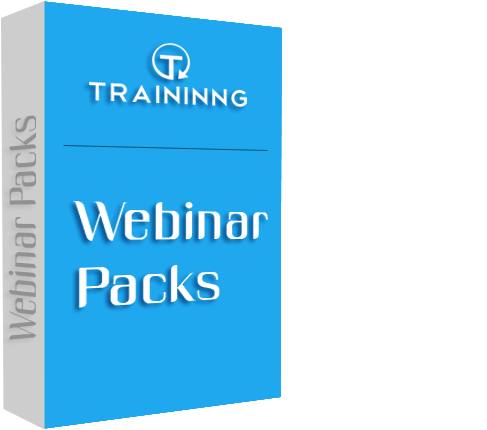
Product Id: 400004
Webinar Packs Access recorded version unlimited viewing for 6 months. (For Customize Webinar Packs Please Call Customer Care)
"When someone shows you who they are, believe them the first time" Maya Angelou.
Toxicity in the workplace acts like an infectious disease - it spreads and infiltrates teams and relationships, Without the understanding, skills and tools applied intentionally, toxicity will continue to spread eventually impairing the organization and burning out the leaders and staff.
In some organizations, toxicity has a seemingly intractable hold on the culture - its rampant. In other organizations it is more covert, but no less debilitating to the organization and the people.
People who would not normally exhibit toxic behaviour begin reacting to the toxicity of others in ways that are negative and harmful to productivity and relationships. This is the beginning of a downward spiral. Toxicity feeding off toxicity. Good people will leave the team and organization.
Toxic behaviours won't go away if they are ignored. They will fester.
Specific and intentional action is the only way to counter toxicity. There are skills and tactics that will work once the underlying behaviours are identified and understood.
Only by learning how to identify toxic behaviours and developing a specific plan to confront and incapacitate them, will the workplace become safe and harmonious.
Workplace drama sucks the productivity out of a team or organization. It also creates an inhospitable environment where healthy people don't want to work so they leave. Good, productive people leave the organization.
In fact, the best people, the highest performers, the self-directed, the most creative, those that need little oversight, are most likely to leave. Why?
So much time and effort is required to navigate through all the drama. High performers just want to get the job done, but the drama is a barrier. Managers and leaders spend way to much time trying to tamp it down, or worse, let it continue to happen, but find work-arounds.
Drama can be anywhere on the spectrum between easily seen and difficult to recognize because it is so nuanced. When it is the latter, it can be very insidious, working its way throughout the organization without raising a lot of flags, until the negative results start becoming obvious. Because it is often so pervasive it can seem like it would be hard or nearly impossible to eradicate. Its not.
Creating a drama free environment has to start with identifying that the current workplace has drama, and then making a commitment to eliminate the drama, which usually starts with understanding the benefits. The benefits include higher productivity, more harmonious culture, which attracts and retains top talent, less leadership time spent addressing the symptoms of drama, more time developing and executing strategy.
There is no *quick fix* for a drama-filled environment, but changes can be undertaken immediately and positive results can be realized immediately. It doesn't even have to start at the top, team members can begin to transform the environment with their own commitment and actions. Although to change the organizational culture, senior management has to buy-in and commit to making changes.
This webinar details a comprehensive plan for eliminating drama in the workplace.
You will leave this webinar with a clear understanding of what drives these emotional outbursts and how to use a 3 step process to deal with them constructively and productively.
You will know how to use the Art of Emotional Aikido - you'll be able to protect yourself from even the harshest attacks. You will be able to leave "work at work" and enjoy your personal time without having to replay events of the day.
Think about it:
A leader does not necessarily manage, but a manager had better be a good leader.
Why is leadership so important.
Without leadership, nothing gets done. Leadership brings vision and ideas and sets the course or direction. Managers ensure execution.
People don't leave companies, they leave bosses. Leadership is the most important factor in staff retention and productivity.
Often people are uninspired or disgruntled but don't leave - they stay and become an anchor on the team, project or organization.
What makes a good leader.
Some people assert you have to be born a leader - in reality, the skills, traits and attributes can be learned.
Attend this webinar and you will learn how to become a better leader - whether you are new to the game or are an experienced leader - you will find valuable ideas in this webinar.
You know what it feels like to be on a great team. There's trust, collaboration, caring, and incredible energy. You want to go to work everyday. On the other hand, you also know what it feels like to be on a dysfunctional team. It's exhausting. You feel like you're swimming against an incoming tide all the time.
On some teams the failures are painfully obvious. On others they are nuanced and not easily identifiable. In either case, you need to know the specific steps to transform a dysfunctional team into a high-functioning, collaborative, and supportive team.
That's what this webinar will address. Learn how to diagnose the 5 primary reasons teams fail. Learn the corrective actions for each of those reasons. Learn the hierarchy - what has to come first to build a foundation. If a solid foundation is not in place, nothing else you do will work.